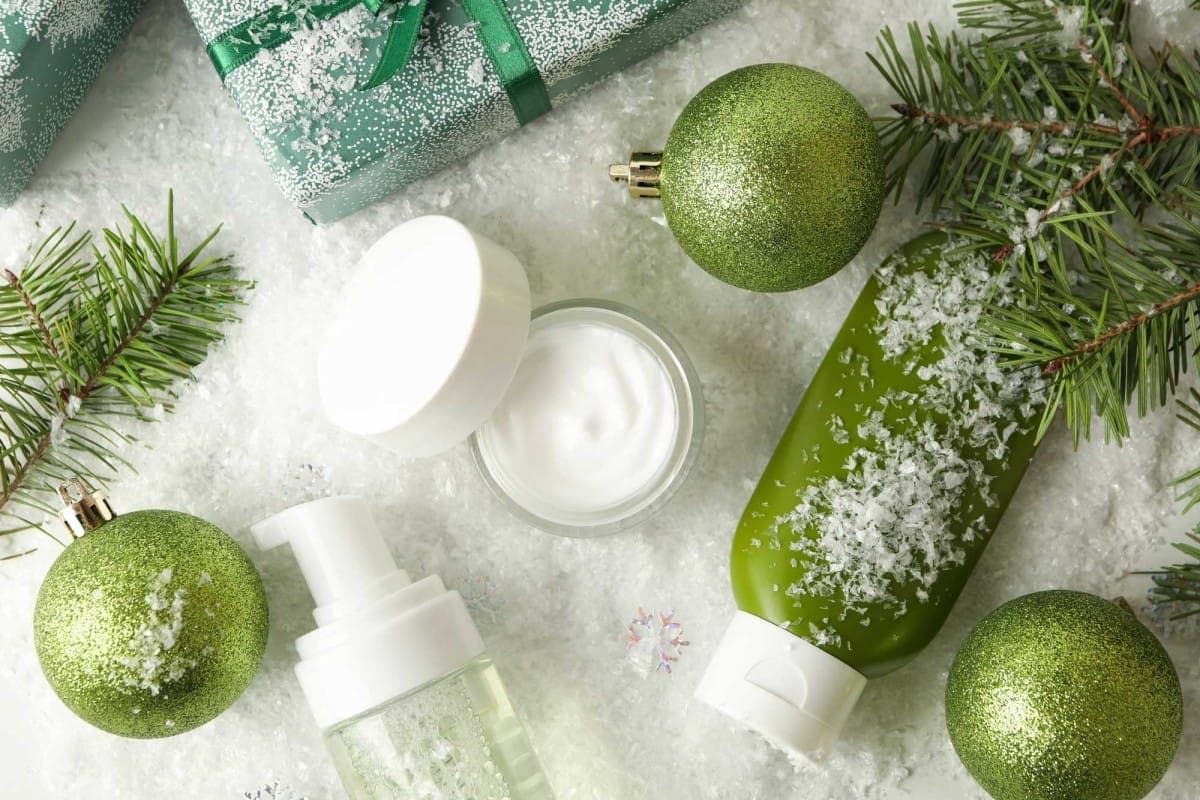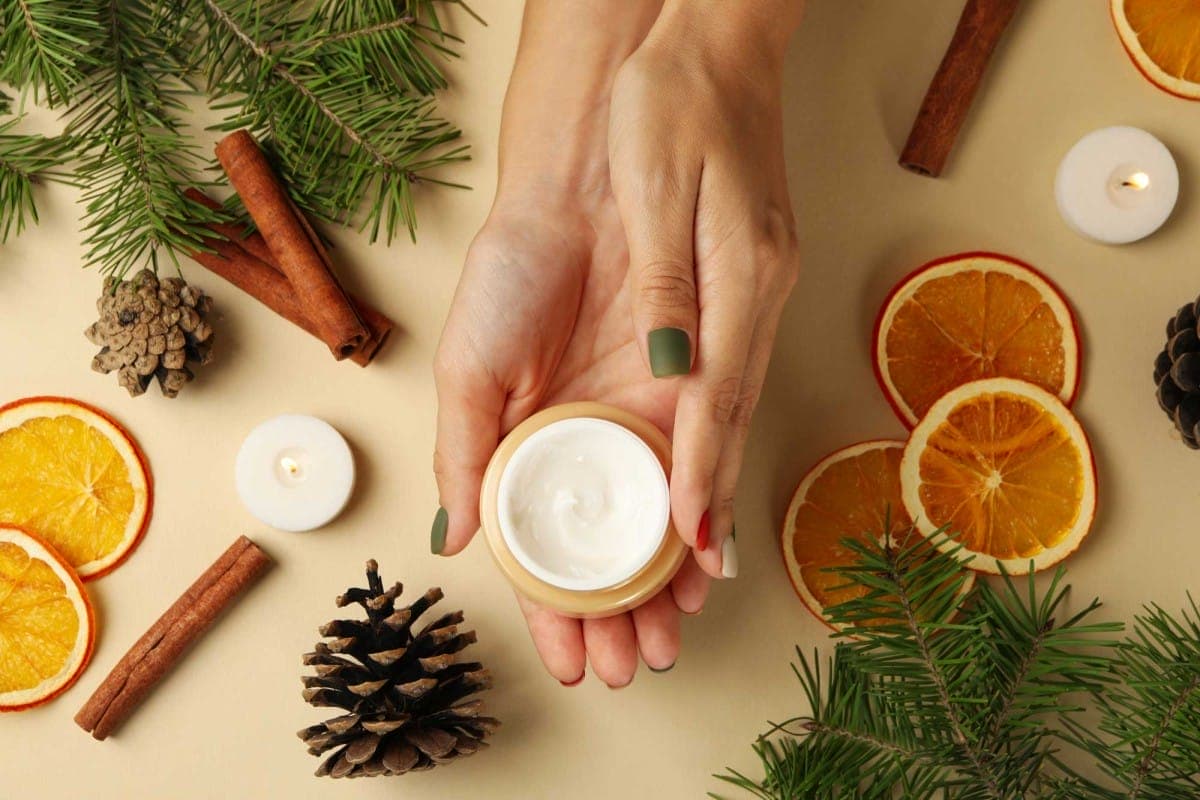The changing seasons bring more than just shifts in wardrobe and mood. Your skin—your body’s largest organ—feels every temperature drop, every humidity change, and every gust of wind. And if you’ve ever noticed your skin getting dry and flaky in winter or extra oily in summer, you’re not imagining things. The environment plays a direct role in how your skin behaves. That’s why a one-size-fits-all skincare routine doesn’t work year-round.
What works for your skin in July probably won’t cut it in January. As the temperature, humidity, and sun exposure change, so should your approach to skincare. It’s not about overhauling your entire routine every three months but making small, thoughtful adjustments to keep your skin balanced and healthy all year long.

Why Your Skin Changes With the Seasons
Your skin is a highly adaptive organ, constantly reacting to its surroundings. When seasons shift, three main environmental factors impact your skin:
- Temperature Fluctuations: Cold air tightens pores and slows oil production, while heat increases sebum production and can cause breakouts.
- Humidity Levels: High humidity can make skin feel greasy, whereas low humidity can lead to dehydration and flakiness.
- Sun Exposure: UV rays are present year-round, but their intensity varies. More sun in summer means a higher risk of hyperpigmentation, while winter sun combined with snow glare can be just as damaging.
Beyond these environmental shifts, our habits change too. Hot showers in the winter strip moisture, while chlorine from summer pools can dry out the skin. Each season presents unique challenges, and adjusting your skincare routine accordingly can make a world of difference.
Winter: Combat Dryness and Sensitivity
Cold temperatures and indoor heating create a perfect storm for dry, irritated skin. The lack of moisture in the air means that your skin’s hydration levels drop, often resulting in tightness, flakiness, and increased sensitivity.
Key Adjustments for Winter Skincare
- Switch to a Hydrating Cleanser: Foaming or gel-based cleansers can strip too much oil, so opt for a cream-based or oil cleanser to maintain moisture.
- Increase Moisture with a Heavier Cream: Lightweight moisturizers may not cut it. A thicker, ceramide-rich cream locks in hydration and protects the skin barrier.
- Introduce Hydrating Serums: Look for ingredients like hyaluronic acid and glycerin, which pull moisture into the skin and help prevent transepidermal water loss.
- Use a Humidifier: Since indoor heating depletes moisture, using a humidifier at night can help maintain hydration levels.
- Don’t Skip SPF: Winter sun and reflections from snow can still cause damage, so continue applying sunscreen daily.
Chapped lips and dry hands are also common winter concerns. Use a thick lip balm with shea butter and keep a hand cream with you at all times.

Spring: Repair and Rejuvenate
As temperatures rise and humidity levels increase, your skin starts to recover from the harshness of winter. But this transition period can also trigger sensitivity, breakouts, and dullness.
Key Adjustments for Spring Skincare
- Exfoliate to Remove Dead Skin: Winter often leaves a buildup of dry skin, so incorporating a gentle chemical exfoliant (like lactic acid) once or twice a week can brighten your complexion.
- Lighten Up Your Moisturizer: You may not need a heavy cream anymore. Switch to a gel-based or lightweight lotion to keep your skin hydrated without feeling greasy.
- Increase Antioxidants: Spring means more sun exposure, and antioxidants like vitamin C help fight free radical damage and brighten the skin.
- Allergy-Proof Your Routine: Pollen and seasonal allergies can lead to redness and irritation. If this happens, look for soothing ingredients like aloe vera and centella asiatica.
Spring is also a great time to focus on skin renewal, so consider adding a niacinamide serum to strengthen the skin barrier and reduce any post-winter dullness.
Summer: Control Oil and Protect Against Sun Damage
Longer days, more sunshine, and higher humidity levels can cause an increase in oil production, clogged pores, and breakouts. On top of that, UV exposure is at its peak, making sun protection more important than ever.
Key Adjustments for Summer Skincare
- Opt for a Gel-Based Cleanser: Sweat and oil can build up quickly, so a lightweight, non-stripping gel cleanser helps keep your skin fresh.
- Use an Oil-Free Moisturizer: Heavy creams can feel suffocating in the heat. A lightweight, non-comedogenic moisturizer provides hydration without clogging pores.
- Prioritize SPF: A broad-spectrum sunscreen (SPF 30 or higher) is non-negotiable. Reapply every two hours, especially if you’re swimming or sweating.
- Incorporate a Mattifying Serum: If excess shine is an issue, look for serums with niacinamide or zinc to control oil production.
- Soothe Sun-Exposed Skin: Aloe vera, green tea, and centella asiatica can calm any redness or irritation caused by too much sun.
Summer skincare should be all about hydration without heaviness, so stick to lightweight products and reapply sunscreen religiously.

Fall: Strengthen and Prepare for Cooler Weather
As temperatures start to drop, your skin begins adjusting once again. The transition from summer to fall often brings increased sensitivity, dehydration, and a weakened skin barrier.
Key Adjustments for Fall Skincare
- Reintroduce a More Nourishing Moisturizer: A lightweight gel may not be enough anymore. Look for a hydrating lotion with ceramides and fatty acids.
- Repair Summer Damage: If summer left you with sunspots or uneven skin tone, now is the time to incorporate ingredients like vitamin C and retinol to help even out pigmentation.
- Exfoliate Wisely: The summer sun can make skin more sensitive, so if you’ve been avoiding exfoliation, slowly reintroduce gentle exfoliants to remove dead skin.
- Protect Your Barrier: Look for soothing and repairing ingredients like panthenol, oat extract, and squalane to keep your skin resilient.
Since fall weather can be unpredictable, your skin might go through an adjustment phase. Pay attention to what it needs—whether that’s more hydration, exfoliation, or soothing ingredients.
FAQs About Seasonal Skincare Changes
Do I need to completely change my skincare routine every season?
No, but making small adjustments based on temperature, humidity, and sun exposure can keep your skin balanced.
Why does my skin break out when the seasons change?
Shifts in temperature and humidity can throw off your skin’s oil production, leading to clogged pores and breakouts.
Should I use sunscreen in winter?
Yes! UV rays are present year-round and can still cause damage even on cloudy days.
How can I prevent dry skin in winter?
Use a gentle, hydrating cleanser, switch to a thicker moisturizer, and consider using a humidifier indoors.
What’s the best way to transition my skincare routine between seasons?
Gradually swap out products instead of making drastic changes all at once. Pay attention to how your skin reacts and adjust accordingly.
Can I use the same moisturizer year-round?
Possibly, but many people find that a heavier moisturizer works better in winter, while a lighter one is more suitable for summer.
Is exfoliation more important in some seasons than others?
Yes. In spring, exfoliation helps remove winter buildup, while in fall, it helps repair summer damage. However, year-round exfoliation should be gentle and balanced.
Should I use retinol year-round?
Yes, but in summer, be extra diligent with SPF, as retinol can make your skin more sensitive to the sun.
Adapting your skincare routine with the seasons doesn’t have to be complicated. By listening to your skin and making subtle shifts, you can keep it glowing and healthy all year long.




